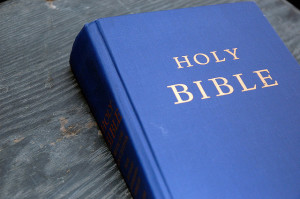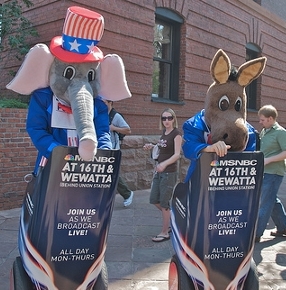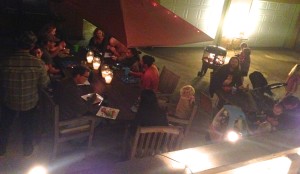 The Bible is one of the most misunderstood books in the history of humanity. Yet, it is the most read book in the history of humanity.
The Bible is one of the most misunderstood books in the history of humanity. Yet, it is the most read book in the history of humanity.
It has been used to produce beautiful and broken realities:
- The Bible has been used to silence and dehumanize women as “less than” and inferior. Some scholars have gone as far as saying women lack the image of God. Obviously, this leads to abuse and exploitation.
- The Bible has been used to affirm the enslavement and exploitation of complete races of people who look different than those in power.
- The Bible has been used to justify some of the bloodiest and unjust wars in human history.
- The Bible has been used to isolate segments of society as though they are modern day lepers who are trying to infect the rest of the society.
- ON THE OTHER HAND, a massive number of human rights and liberation movements throughout history have been fueled by a community who held the Bible as their sacred text. To name a few: The civil rights movement, modern unearthing of the sex trafficking industry, global reduction of poverty and increased access to clean water, overturning South African apartheid, etc…
This begs the question, “Is the problem the Bible or the way in which we have interpreted it over centuries of Church history?”
The other day, our church community started a series focused on asking hard questions about the Bible; where it came from, how it was written and assembled, what it contains and what are faithful ways we can begin to interpret its seemingly beautiful and broken contents.
Let’s be honest, many folks have been reading the Bible since they were small children and now approach it will so many assumptions around interpretation and application that our engagement with the living text has calcified. On the other hand, many of us are new to following Jesus and asking where this book containing violence, infidelity and tribalism fits into liberating love and faithful discipleship.
We have two choices: 1. Continue with our assumptions about the text and stay comfortable (and potentially resentful), or 2. Engage the text critically seeking a renewed understanding of its place in our Christian story.
I would endorse the latter. We don’t honor the Scriptures by dancing around the hard questions that force us into the muck and messiness of this complex story. No, we honor the Scriptures when we push into them with an eye toward understanding where they fit in God’s story of reconciliation with humanity and redemption of all the cosmos. It should make us squirm when we read about God endorsed genocide in the Old Testament and dehumanizing endorsements of “slavery” and gender inequality in the New Testament. We can let that squirming fester and lead us to resentment or withdrawal, or we can jump right into it seeking to understand beyond a surface reading that fails to invite us into the depth and breadth of the text in context.
A Couple Thoughts to Frame this Conversation
We don’t follow the Bible, we follow Jesus. When those get inverted, bad things happen. Yes, the Bible is one of the primary resources for faithfully following Jesus, and we are commanded to obey Scripture, but it is a means to an end…not the end in and of itself. When we follow the Bible (or, more accurately, our interpretation of it…) rather than Jesus, we may get the “right” answers while failing to live, love and lead in the way Jesus did and calls us to do. We can’t prooftext our way to right relationship (e.g. 1st century Pharisees or modern street preachers holding hate signs that may – or may not – have the “right” answers but in no way reflect the love of Jesus for humanity). We must enter into relationship and allow the Spirit to lead and guide us in the middle of it.
The Bible wasn’t written ABOUT us, but it was written FOR us. We have to understand context and genre because most people writing the Bible and/or whose story the Bible was telling lived in a radically different context that we do today. The vast majority of the Biblical canon is written about a people (Israel) who are seeking to rightly follow God (Yahweh) and reflect his love to the world as they live as a migrant community wandering the Middle East or as a community in exile under the heavy yoke of Empire (of course, they had seasons in power as well). Bottom line, as Western Christians who have the most “power” in the world, there is very little we can relate to about the realities of who the Bible was written about. We’d be wise to ask our immigrant neighbors or our brothers and sisters living under the reign of a violent regime how they may help us intrepret the Story of God told through Israel. Lastly, it was written FOR us in as much as it is a story of humanity’s (which includes us) journey back to God and his mission of reconciliation and redemption of all the cosmos.
Infallibility, Inerrancy and all that fun stuff. This is where things often get a bit sticky. The Bible is a book written by human beings with stories, agendas and literary techniques unique within their context. Yes, the Bible was God-breathed, but we have to understand both the human writing and human reading of the text. Inerrancy is a modern concept; not applied to Scripture until the Enlightenment when truth became primarily associated with science, logic and rationality. Infallibility doesn’t lead people astray, it leads people into the middle of the human story (with all its muck, mess, beauty, hope, tragedy, doubt, etc) and of God’s willingness to meet them right in the middle of it.
The Art of Interpretation. There is a long history of brilliant people trying to decide how in the world to interpret this wildly complex and sacred text. The way in which said brilliant people have chosen to interpret represents a really, REALLY wide spectrum. Some have chosen to see Scripture as allegorical (Church Father, Origen, being a leading proponent), which proposes that the deepest truth of Scripture isn’t found in a literal reading, but in the space where the words are pointing us (beyond and below a literal reading). On the other end of the spectrum, some argue that a literal reading of text is the only way to faithfully interpret the truth being conveyed by the biblical authors. In short, it is important to note that there is no such thing as reading the Bible without interpreting it. There are many ways to interpret and we trust the Spirit to guide us to those ends, but all is interpretation and we’d be wise to embrace that as a gift rather than a threat.
PRIMARY THEME: It is important to enter our reading of the Bible with an eye toward the meta theme of God’s Story, which is God’s Reconciliation with Humanity and Redemption of all the cosmos (New Creation). Amid all of the potentially confusing, complex and confounding pieces of Scripture, this is the theme our interpretation must point back to (unless, of course, you view the primary theme as something radically different…). It is a story of right relationship, grace, selfless love, unfolding liberation and a relentless pursuit of all things being set to right.
CENTRAL CHARACTER: Israel. Yep, this is not the answer most people expect to hear and, sadly, I don’t have space to fully unpack the nuances here. In short, the whole of the Old Testament (Hebrew Scriptures) is the story of Israel’s covenant relationship with God (Yahweh) and their vocation to reflect good news to the world. The Bible isn’t a story of autonomous stories that are fun to read. No, they are all placed within God’s redemptive plan for humanity as seen through its central character, Israel. “Well, what about Jesus?” one may ask. Yes, Jesus is the more important character in the story, but we MUST understand Jesus in the context of his role in Israel’s story. Jesus is the long awaited messianic deliverer of Israel (second “Adam”) who finally liberated them from exile and expanded the identity of the people God to the ends of the earth. Jesus is central to Israel’s story and to understand him outside of the context completely neuters the story and his decisive role within it.
In my next post (part 2), I’ll seek to answer the question, “Where did the Bible come from?” by offering a brief recap of how the content was captured over a couple thousand years leading up to the final canonization of our current Christian Bible.
 Well, here we are again. The season that seems to come around all too often and stick around far too long. Some of our dinner table dynamics are still trying to recover from “conversations” that percolated during the last election season and our “unfriend” counts have finally slowed.
Well, here we are again. The season that seems to come around all too often and stick around far too long. Some of our dinner table dynamics are still trying to recover from “conversations” that percolated during the last election season and our “unfriend” counts have finally slowed.  I’m a doer.
I’m a doer. The violence of our world seems to be spiraling out of control. Every news outlet is filled with the latest tragedy and for many, the violence has struck closer to home than they ever imagined. Sadly, much of the violence is being done in the name of religion. Religion – at its best – is designed to be a conduit for right relationship. At it’s worst, used as a tool for manipulation and violence. While the former is certainly happening, the latter appears to be one step ahead at the moment.
The violence of our world seems to be spiraling out of control. Every news outlet is filled with the latest tragedy and for many, the violence has struck closer to home than they ever imagined. Sadly, much of the violence is being done in the name of religion. Religion – at its best – is designed to be a conduit for right relationship. At it’s worst, used as a tool for manipulation and violence. While the former is certainly happening, the latter appears to be one step ahead at the moment.  As we move into a new year, our little community of Jesus followers is taking some intentional time to individually and collectively reflect, evaluate and consider the implications of committing to each other and God to our shared life in Golden Hill for another year. One of the practices we have committed to in this time is to confront the unhealthy or unrealistic expectations we have of each other. We have found that dreams, visions and hopes for our community are good, beautiful and necessary. While that remains true, they can be the very things that destroy community before it starts.
As we move into a new year, our little community of Jesus followers is taking some intentional time to individually and collectively reflect, evaluate and consider the implications of committing to each other and God to our shared life in Golden Hill for another year. One of the practices we have committed to in this time is to confront the unhealthy or unrealistic expectations we have of each other. We have found that dreams, visions and hopes for our community are good, beautiful and necessary. While that remains true, they can be the very things that destroy community before it starts.